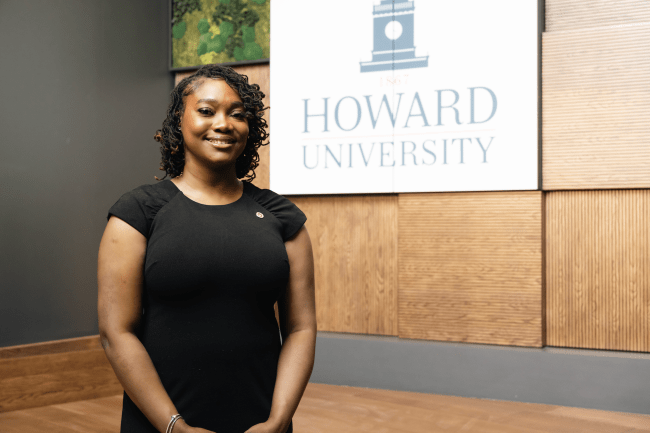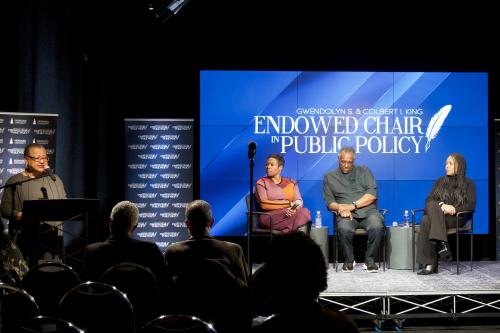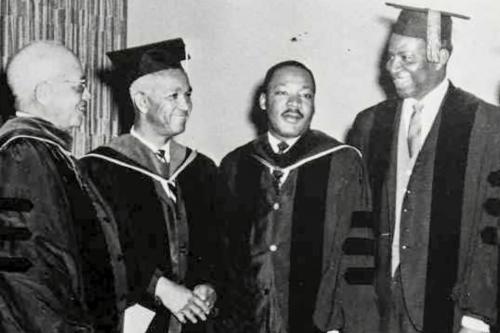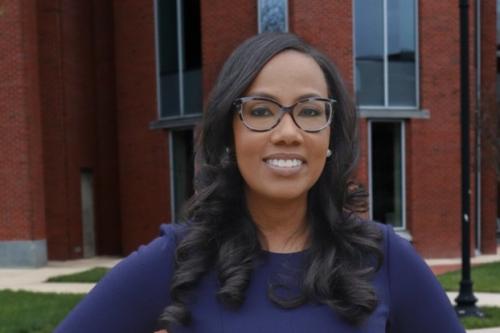When you ask Natoy Fowler-Rowe how she managed to balance being a dual master's student, a leader in the Chapel, a researcher, and a peer mentor — all while being a Jamaican-American scholar — her answer isn’t what you might expect.
“I just kept asking myself, how are we really doing, and how do we keep going?” she says with a warm, thoughtful pause. “And I realized, most students didn’t have the space or time to really figure that out.”
That central question became the foundation of Fowler-Rowe’s research and student leadership at Howard University, where she is graduating this spring with dual Master of Divinity and Master of Social Work. Her focus? Wellness during the college transition, especially at HBCUs, and the role that spirituality, peer support, and creative outlets play in helping students navigate the chaos of college life.
Making It Make Sense: From Lived Experience to Research Impact
Fowler-Rowe’s work is deeply personal. Once she arrived at Howard, she noticed a recurring theme among students she met through the Andrew Rankin Memorial Chapel, where she served as a graduate assistant.
“Students would pop into the Chapel office just to vent or breathe,” she recalls. “And a lot of them said the same thing: ‘I couldn’t get into the counseling center,’ or ‘I went, but now what?’ That’s when I knew this was bigger than just me.”
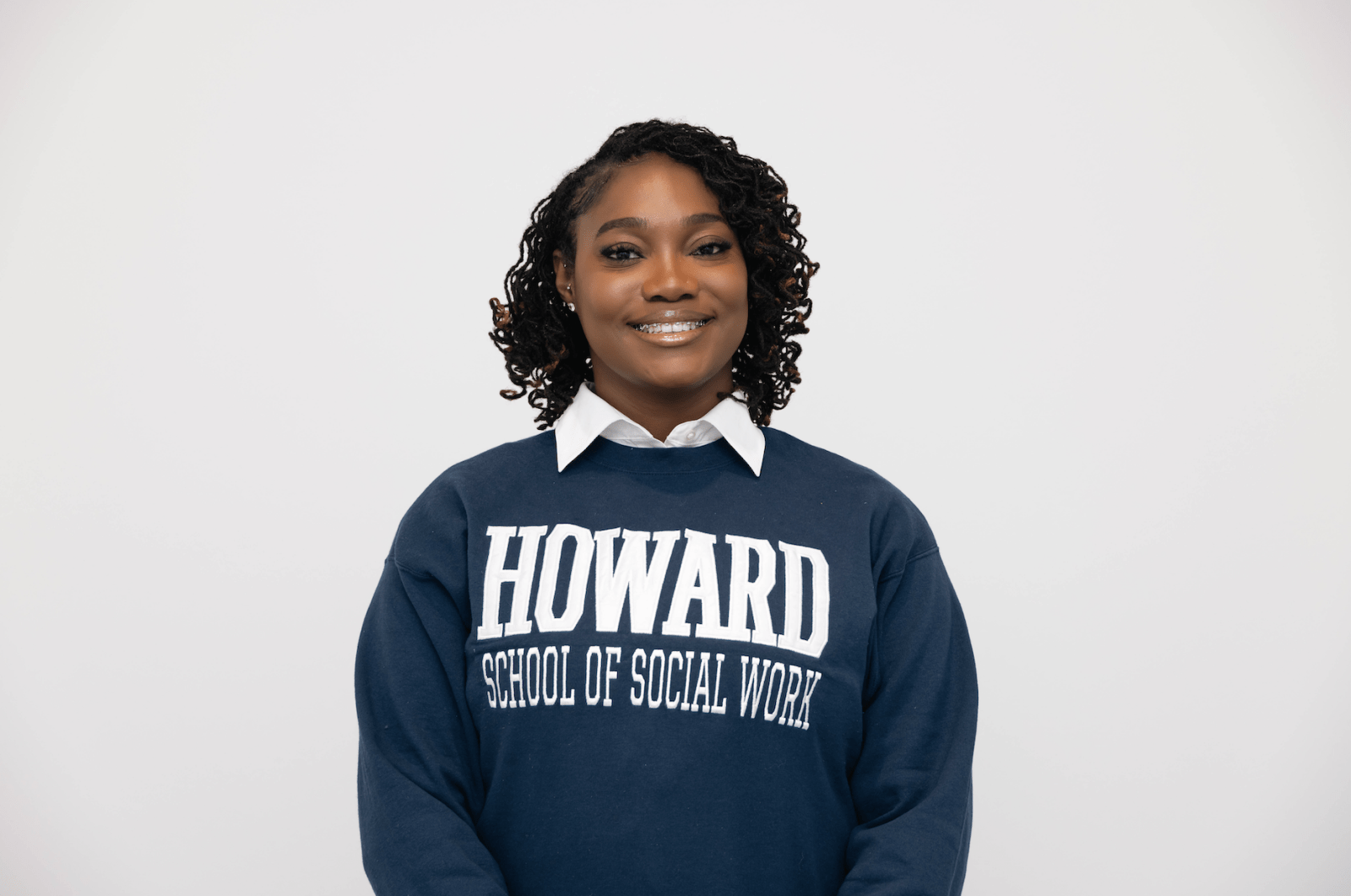
She began organizing peer wellness check-ins, helping students reflect on their mental health and find support systems. But this wasn’t just about talking. Fowler-Rowe wove in her background in art therapy with programs like Matters of the Heart and Mind Over Makeup — weekly sessions where students processed emotions through painting, poetry, or even makeup tutorials.
“It wasn’t about the makeup itself,” she explains. “It was about helping people feel seen, helping them show up for themselves again.”
The Role of Interfaith Spaces in Personal Growth
Raised Pentecostal in a Jamaican household, Fowler-Rowe didn’t always feel fully connected to her faith. “There were too many rules,” she laughs. “I stepped away, but I came back when I was ready to explore deeper.” That exploration brought her to Howard’s interfaith community, where she was able to learn from and worship alongside peers from Muslim, Jewish, Catholic, AME, and other traditions.
Being exposed to so many faiths didn’t dilute her Christianity — it strengthened it. “I believe in God more now because I’ve seen God in so many different forms,” she says. “God shows up for all people.”
It’s a lesson in openness that many students today are hungry for. In a world where social divisions and cultural misunderstandings are increasingly sharp, Howard’s interfaith Chapel became a sanctuary for bridge-building, healing, and meaningful dialogue. Fowler-Rowe describes her journey not just as academic, but transformational.
“Howard gave me hope,” she says. “If I didn’t come here, I don’t know where I’d be spiritually. But here, I grew in ways I couldn’t have imagined.”
Creating Safe Spaces, Not Just Conversations
One of Fowler-Rowe’s proudest moments was watching student groups she mentored start their own wellness initiatives. “We didn’t just talk — we built something that students wanted to keep going,” she says.
With support from Dean Richardson and the Chapel staff, Mind Over Makeup grew from a Friday gathering in the Quad to a team of 15 young women leading weekly programming. Students learned how to express themselves creatively while checking in on each other’s mental health, often for the first time in a long time.
“There’s something powerful about pausing and saying, ‘How am I really feeling?’ and then having the courage to answer honestly,” Fowler-Rowe reflects.

Wellness as Everyday Practice
So, what does Fowler-Rowe want others to take away from her work?
“Wellness isn’t luxury — it’s survival. It’s sitting with yourself, checking in, being honest, and finding your peace, whether that’s through prayer, painting, or just breathing.”
Her research reminds us that mental health and faith don’t have to exist in separate worlds. For many, they’re deeply connected. And when you add peer support, creative expression, and a community that sees you as a whole person — it doesn’t just make sense. It works.
Looking Ahead
As she prepares to walk the stage at Commencement 2025, Fowler-Rowe knows her work isn’t finished. Students have already asked her to help formalize her programs into an official organization under the Chapel — and she’s passing the torch with confidence.
“I came here to grow, and I’m leaving knowing I’ve helped others do the same. That’s the legacy I want.”


